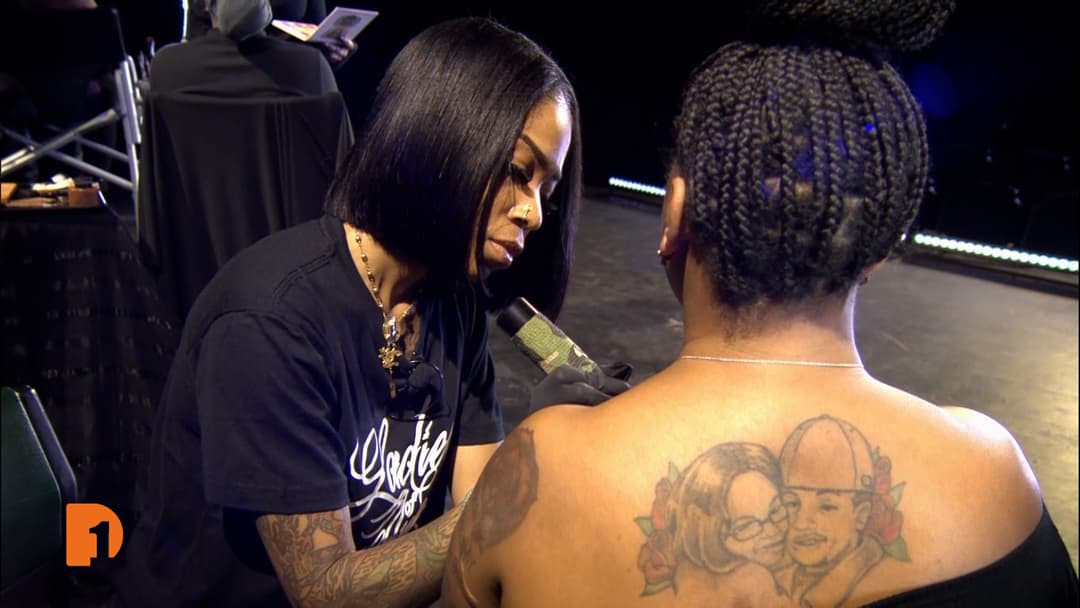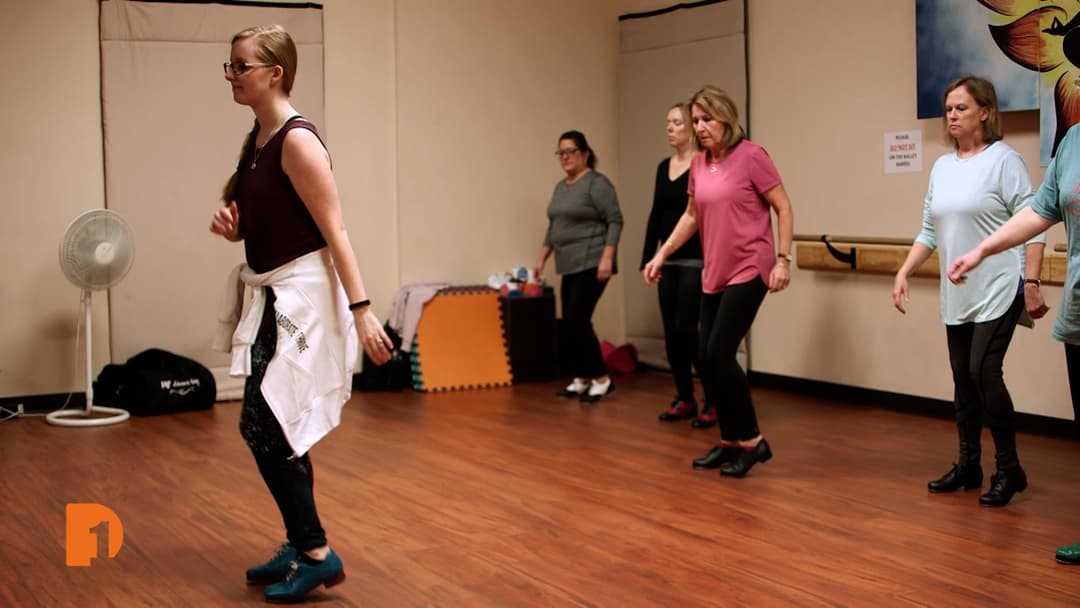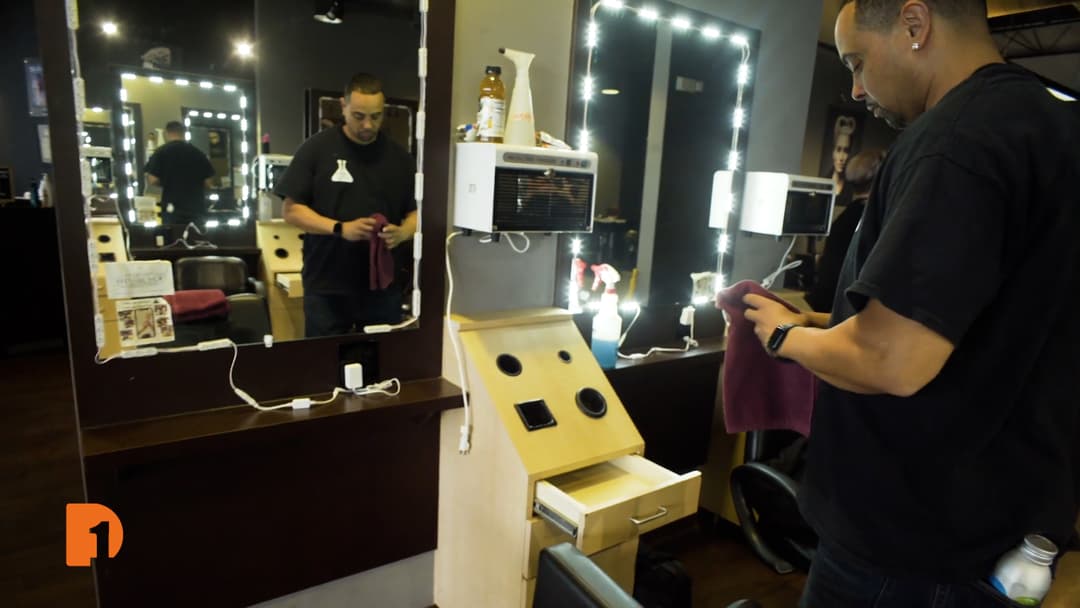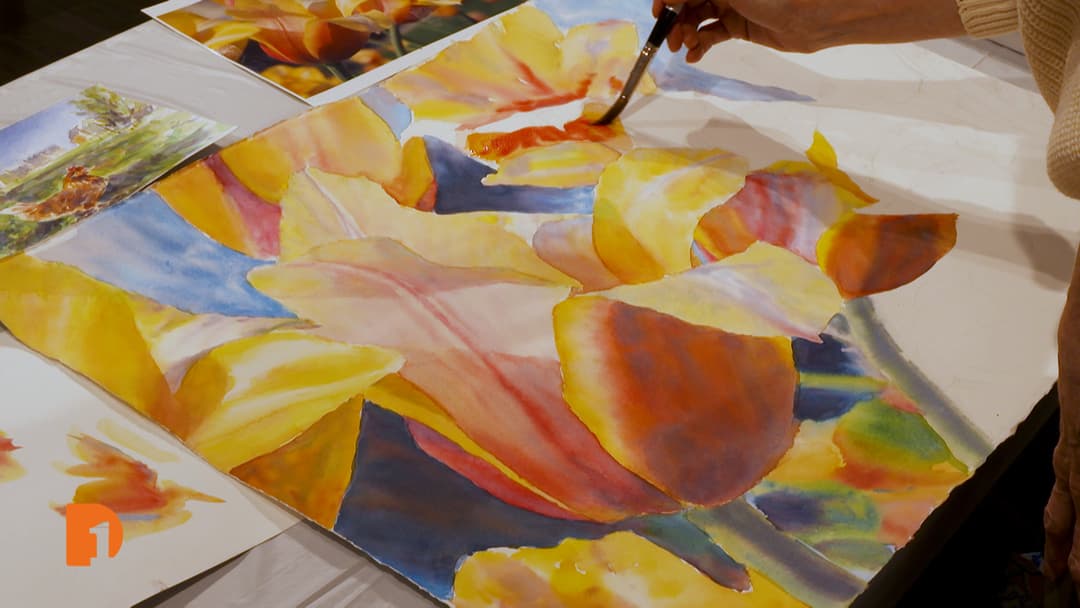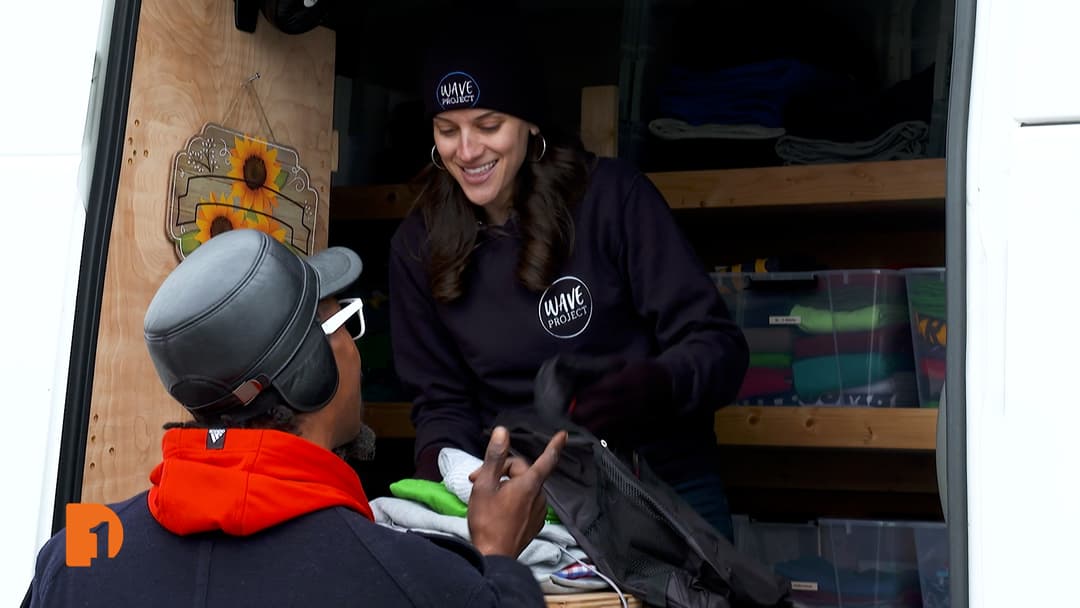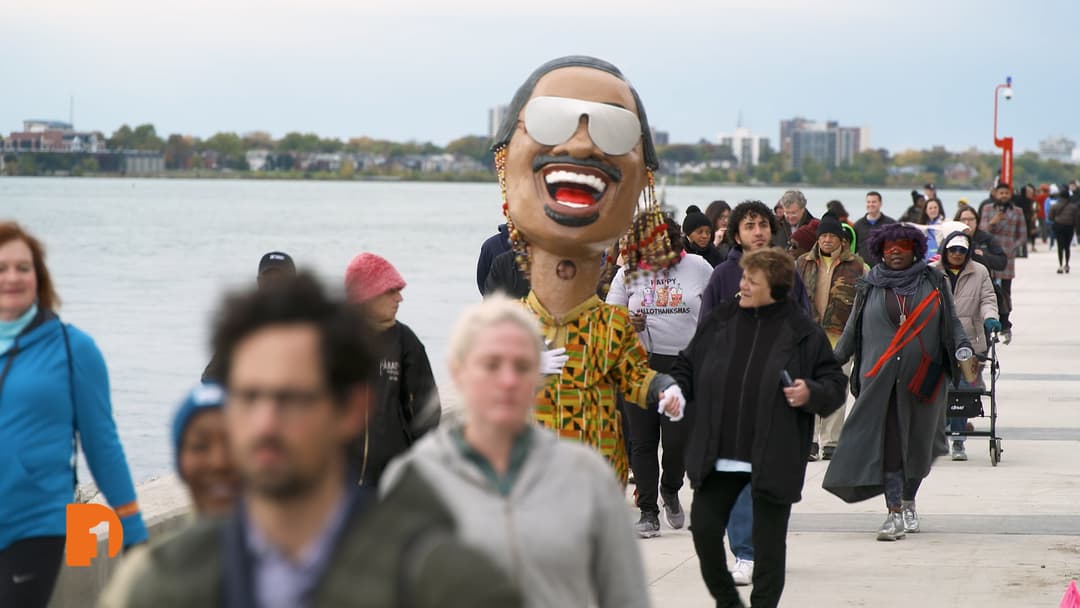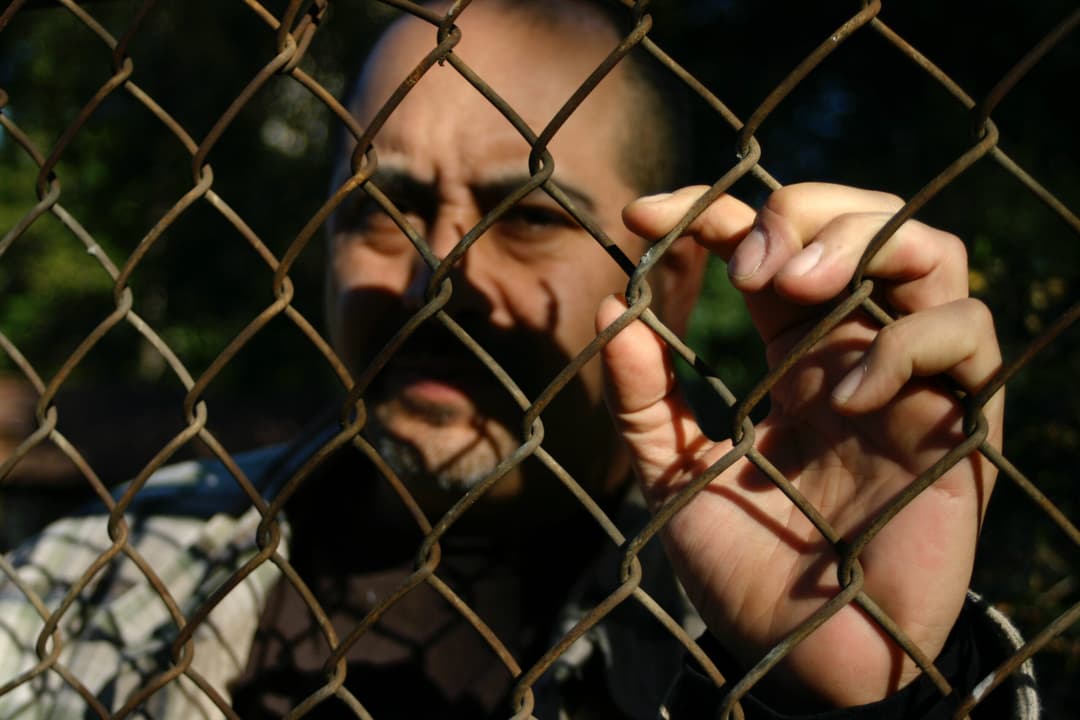Mariners Inn uses art therapies to help men struggling with homelessness, substance abuse
Aug 29, 2022
At Mariners Inn, a treatment center and shelter for men dealing with homelessness and substance abuse issues, the organization’s clients find more than help. They find therapy and healing. “Recovery is real, and it begins at Mariners Inn,” says Brittany Miles, the clinical treatment director at Mariners Inn, which provides a range of art and creative therapies to help clients express what they’ve gone through when it’s difficult to find the words.
The “Detroit Performs: Live From Marygrove” team visits the treatment center for a look at what it offers to Detroiters in need. Mariners Inn art therapist Karianne Spens-Hanna and Miles share the types of art therapies clients can be introduced to at the shelter and the benefits each medium provides. Plus, The Poets of Mariners Inn Workshop Facilitator Joel Greene and Baba Kevin Collins, an African drummer with Heritage Works, talk about the poetry and music programs they lead at Mariners Inn.
Full Transcript:
Lloyd, Client, Mariners Inn: I was in a dark place, and as I was coming here, I could see a little light.
Baba Kevin Collins, African Drummer, Heritage Works: We know people have problems; they need help. So, this is a place where they can come. We need places like this.
Joel Greene, Workshop Facilitator, The Poets of Mariners Inn: This place always shows me how common we all are. Regardless of age, race, background, where you grew up, it just shows you the connections we all have as human beings.
Karianne Spens-Hanna, Art Therapist, Mariners Inn: I see the guys that come through here as people who’ve just been through a lot in life. They’ve been through an incredible amount of trauma, who haven’t had the coping skills to deal with it effectively.
Lloyd, Client, Mariners Inn: This is the kind of atmosphere that I wanted to be in because they treated me with dignity and respect.
Karianne Spens-Hanna: Mariners Inn helps men who are dealing with homelessness and substance abuse. This is a treatment center and shelter, so they seek therapy. So, a lot of times words can’t express what they’re going through, especially with trauma. So, the art gives them a way to express what they’ve gone through.
Brittany Miles, Clinical Treatment Director, Mariners Inn: Art therapy is so important because it’s a way to reconnect with the soul. We believe here at Mariners Inn, that drug use and alcohol use is just a side effect of the larger problem. We believe that the larger problem is disconnection. And so, through art therapy, through that form of expression, so much can come out.
Lloyd: Well, I had a drug problem; I had an addiction and I was homeless and I seen myself going down. But I had the second chance to get myself together, that’s why I came here.
Ryan, Client, Mariners Inn: I’ve had a problem with addiction to drugs for a while and it’s caused problems in my life. When I know I want to change, but that change is difficult. But I came to Mariner’s because I wanted help.
Brittany Miles: Trying something new and exposing them to the arts and art therapies, it’s a risk and it’s a way to show them like, hey, certain risks are good and they have an awesome payout.
Karianne Spens-Hanna: Lloyd is very sweet and he’s used this creative process to really move through what he needed to get through.
Lloyd: I love art therapy there because I’ve been making masks, I’ve been making belts, I’ve been making me little bracelets. It’s a lot of things you can do down there. The music she plays and the fragrance that’s been going on, it just soothes you and, you know, it puts you in a different place.
Karianne Spens-Hanna: You can see how they use the art media to express what they’re going through. So, I can use different art media that help push them in different directions, as far as learning more about themselves. We did a painting all about recovery. So,they write down a word or phrase that was helpful to them. And then we did watercolor over top. That media is very fluid, it kind of helps them to let go of needing to control something.
Ryan: It’s not just about doing art either. They come together and talk about what’s going on in their lives too, and how it relates to the art that they’re doing.
Karianne Spens-Hanna: So, when Ryan first got here, he was really reserved and he really thrives in the art room. He’s really good at using the art media to express what he’s going through emotionally. I always want them to leave here and know this is something that they can do on their own to give them a way to move through their conflict.
Speaker 1: Remember who you are don’t slip back into senility / move forward in the race/ pace yourself / speed and agility / carry yourself with honor and some sort of civility.
Brittany Miles: Everyone has a story, especially our clients, that they want to tell. And so, poetry is an excellent way to get your story out, to establish a voice, to reconnect with your voice.
Speaker 2: You got to speak things into existence. So, when I write, I try to write the most positive thing that I can.
Joel Greene: We meet in the library, we talk about our days, we just kind of like soak up how we’re feeling at the moment. You know, this is like my break from my mind and my little stuff that I think is so important. Stuff that gets me down, I come here and kick it with bros, we all have different experiences, it puts mine in perspective, like, you know, just appreciation of being alive. The best poetry is honest. So, this is a place that demands that you be honest about your life so you can come out of here as a better person.
Ryan: I refuse to let go of my addiction altogether / I need some motivation to my heart / will I tether.
Joel Greene: Guys are just sharing about regret, about love, about life, about authenticity, which I think was the theme today, which I really felt was just telling your own story and not judging someone else’s.
Speaker 3: Mind trips in different ways: am I coming or going / I got a whole boost of energy when you tell me you love me.
Joel Greene: They’ve spent the time expressing themselves, getting proficient. They learned how to do it, and they did it, and they executed, and they knocked it out; I think that’s beautiful.
Ryan: The drum circle is really cool, something different. And it teaches you kind of like focus and concentration.
Brittany Miles: It’s all about harmony, balance, connection, connecting with a rhythm. Our clients are so diverse, they come from all walks of life, and so, that drum circle is a way to bring everybody together and connect at the pulse.
Baba Kevin Collins: The Drum is also a healing piece. Here, we wanted to really reach into the gentleman’s soul and give them some positive energy to do this. What is important for them to understand is they are important, no matter what they have been through. So, we try to push from the drumming aspect as positive energy in their lives.
Ryan: You kind of got to step back and realize it’s kind of a team thing, and it sounds good when everybody’s playing together and on the same page.
Brittany Miles: What I see in terms of their growth, is that they really tend to be much more confident in themselves. A lot of times they’ve just been focused on the negative part of themselves and all the mistakes that they made. And then they realize, through connecting with the arts, that they have this amazing creative side where they’re able to create this beauty. And so, it’s like there’s a light at the end of the tunnel.
Joel Greene: If you don’t see humanity in someone else, you look at someone else out there begging and we turn our noses, we keep walking. This is a person, this is a human being with a really valid, real experience in life. This place reinforces the fact that these are human beings. These are men just like me and it’s really important that we all learn, and learn from each other, and learn to love each other in a proper way.
Lloyd: I’m thinking clearer. I know I have a lot of responsibility. It’s not an end to this, it’s something that I have to continue.
Ryan, Client, Mariners Inn: The staff and the other residents here have empowered me to think about what I want in my life and the things that I’m good at and talented at.
Karianne Spens-Hanna: They have so much hope and I love that. They’ve taught me a lot about just staying strong and that it’s possible to completely change your life.
Lloyd: Well, I hope by them seeing me, I can influence and let them know that you can stand up and be somebody.
Brittany Miles: Recovery is real and it begins at Mariners Inn.
Stay Connected:
Subscribe to One Detroit’s YouTube Channel & Don’t miss One Detroit Mondays and Thursdays at 7:30 p.m. on Detroit PBS, WTVS-Channel 56.
Catch the daily conversations on our website, Facebook, Twitter @DPTVOneDetroit, and Instagram @One.Detroit
View Past Episodes >
Watch One Detroit every Monday and Thursday at 7:30 p.m. ET on Detroit Public TV on Detroit Public TV, WTVS-Channel 56.
Stay Connected
Subscribe to One Detroit’s YouTube Channel and don’t miss One Detroit on Thursdays at 7:30 p.m. and Sundays at 9 a.m. on Detroit PBS, WTVS-Channel 56.
Catch the daily conversations on our website, Facebook, Twitter @OneDetroit_PBS, and Instagram @One.Detroit
Related Posts
Leave a Reply
Your email address will not be published. Required fields are marked*








